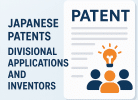* Originally published August 26, 2021. Updated September 9, 2021 in light of further news (in bold). In addition, there were reports on September 27 that the Daejeon Court finally ordered the sale of MHI’s siezed IP assets.
Mitsubishi Heavy Industries (MHI) has been fighting doggedly to retain its intellectual property in the Republic of Korea (South Korea) due to its past actions in Korea. MHI is reported to have forced Koreans to work in its plants during Japan’s imperial control of the Korean Peninsula (1910-1945). In 2020, the Daejeon Court warned MHI that six of its Korean patents and two trademarks, which had already been seized, would be sold, but MHI continued to fight back.
Now, on August 12, 2021, the Suwon District Court’s Anyang branch agreed with the litigants to try to gain the payments another way: a Korean company owing a large sum to Mitsubishi Heavy Industries Engine System (a MHI subsidiary) could be forced to pay what it owes to the Korean government. Now there are concerns whether a subsidiary of MHI is a qualified target of the confiscation of payment.[1]
Meanwhile, the Japanese government has spoken out (again) against the Korean courts’ decisions. On August 19, Chief Cabinet Secretary Kato challenged Korean policy as “blatant breaking of international law” and called on the Korean government to back off of liquidating MHI assets. The Japanese position is that all claims on past crimes such as forced labor by Japanese were settled in a pact with the ROK in 1965, but the war seems to smolder on.[2]
[September 9 addition] However, a further report came out that the plaintiffs had rescinded their request to force payment upon the Korean company, because MHI Engine System was not MHI itself but merely a subsidiary. The plaintiffs go back to the delayed process of either waiting for the sale of MHI’s intellectual property or some other means.[3]
We can be glad that a precedent for seizure of patents and trademarks might not come about, but we really hope for a better form of fair settlement and even reconciliation.
* The information provided on this website is for informational purposes only and is not intended as legal advice.
** For questions or consultation, please contact us for more information.
Contact: Taro Yaguchi
Sources
Back story: see our posts from 2019 and 2020.
[1] Cho YoonYoung. “強制徴用、賠償の可能性高まるも…実際の賠償には壁 [Possibility for forced laborers’ compensation increases but … actual compensation has barriers].” http://japan.hani.co.kr/arti/politics/40887.html. August 23, 2021. Translated from Korean (https://www.hani.co.kr/arti/society/society_general/1008652.html, August 22, 2021). Accessed August 26, 2021.
[2] Nikkei Shimbun. “官房長官、韓国政府に解決策を要求 元徴用工訴訟を巡り [Chief Cabinet Secretary seeks solution with Korean government over former forced laborers’ litigation].” https://www.nikkei.com/article/DGXZQOUA196IQ0Z10C21A8000000/ August 19, 2021. Accessed August 26, 2021.
[3] Nikkei Shimbun. “韓国地裁、債権差し押さえを取り消し 元徴用工訴訟で [Korean regional court cancels freezing of payment in former forced laborer litigation].” https://www.nikkei.com/article/DGXZQOGM029MX0S1A900C2000000/ September 2, 2021. Accessed September 9, 2021.
Header image by Hands off my tags! Michael Gaida from Pixabay






